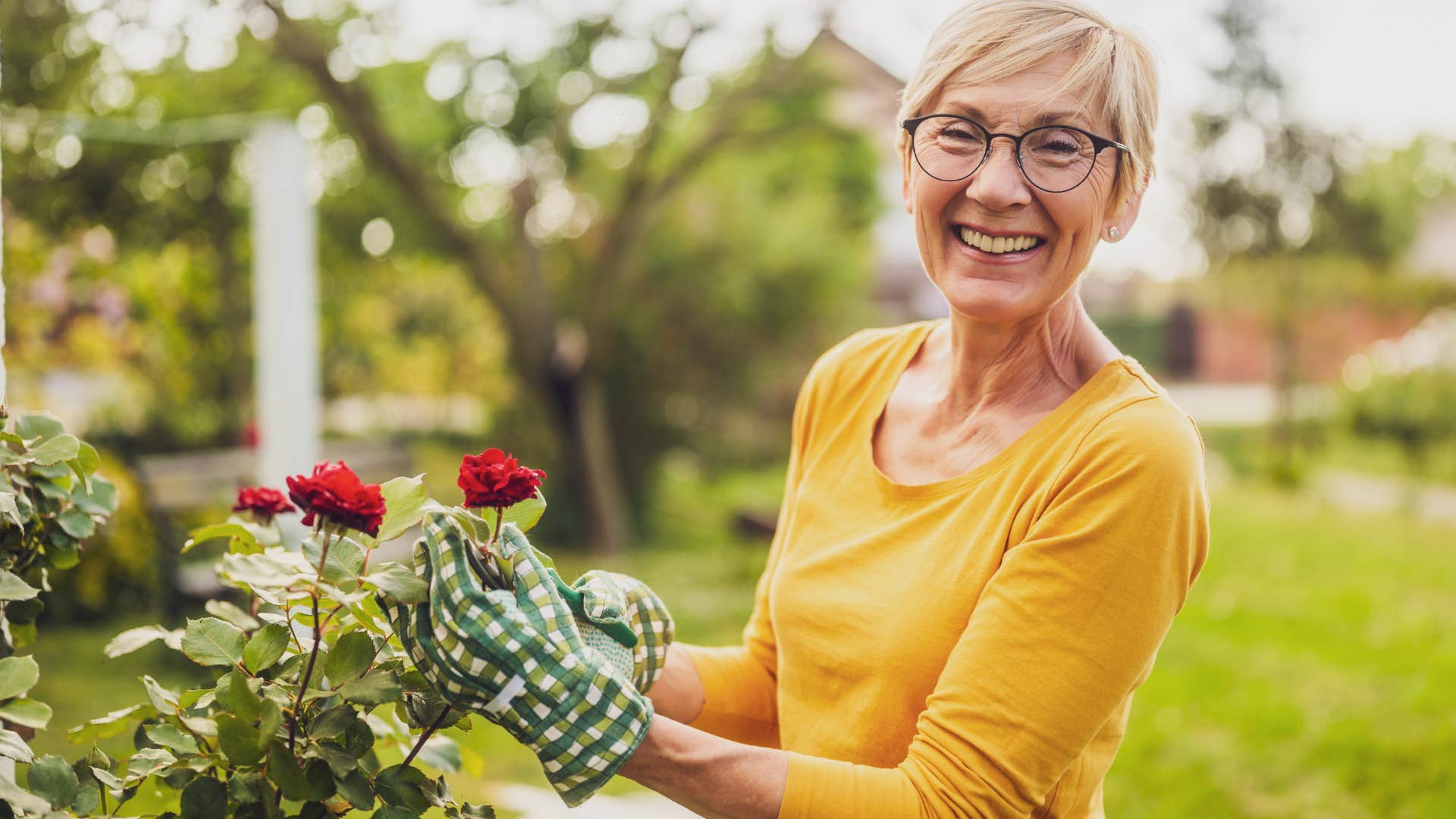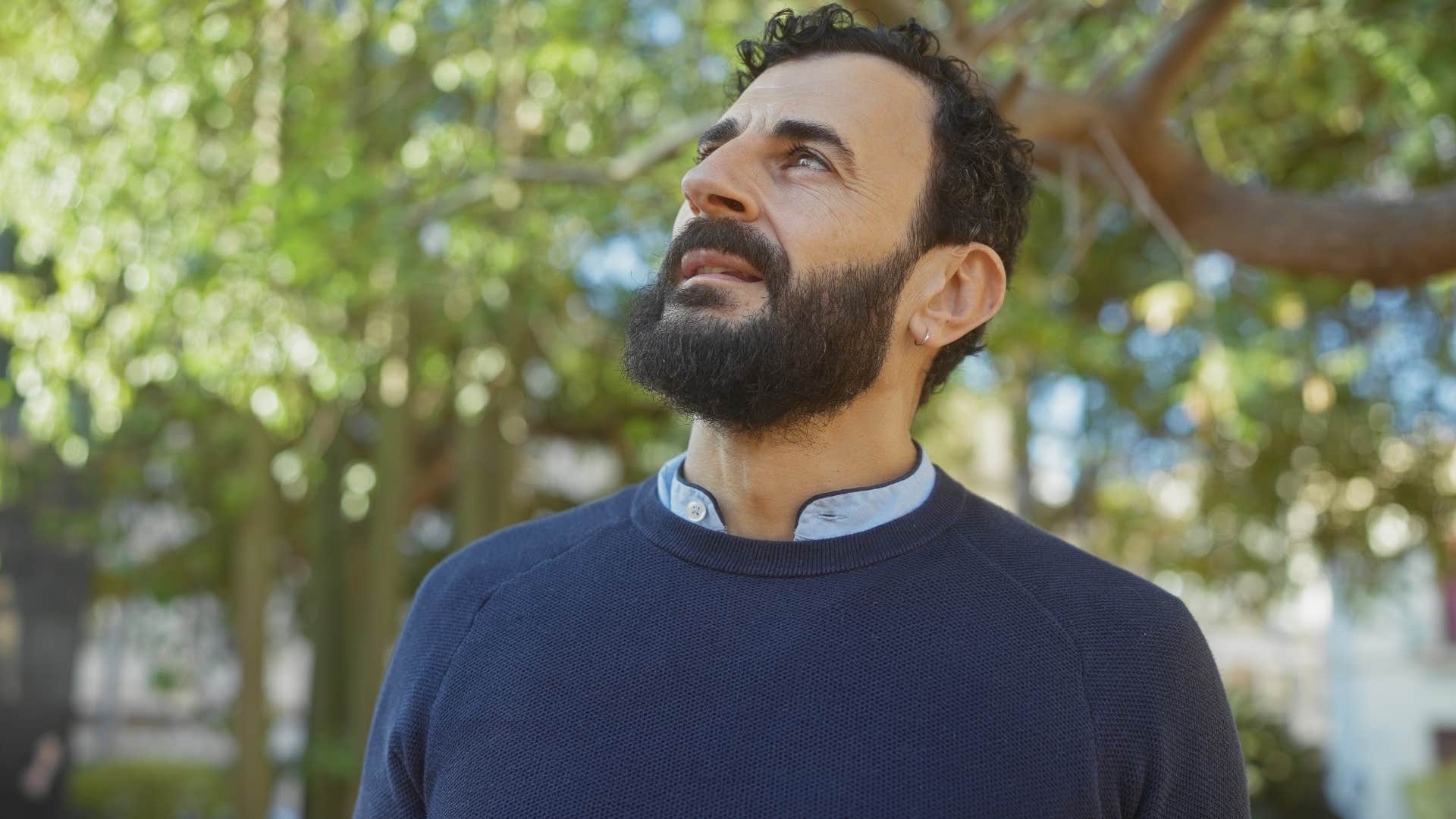People Who Choose Solitude Over Social Life As They Get Older Usually Have These 11 Reasons
Solitude gets a bad rap, but it can be rejuvenating.
 shurkin_son / Shutterstock
shurkin_son / Shutterstock While solitude often gets a bad rap, spending time alone can come with plenty of benefits. As sociologist Anna Akbari suggests, solitude can be stabilizing and grounding, allowing people a chance to pause and cope with the many difficulties and stressors of life.
People who choose solitude over social life as they get older usually have plenty of good reasons, often finding more comfort, joy, personal growth, and fulfillment when they’re alone than when they’re in social situations. With the right balance of social interactions and experiences shared with others, people who prefer solitude as they age tend may even be healthier, as they are better able to deal with stress, anxiety, and change in productive ways that protects their mental, emotional, and physical well-being.
People who choose solitude over social life as they get older usually have these 11 reasons
1. They have fulfilling hobbies
 InesBazdar | Shutterstock.com
InesBazdar | Shutterstock.com
Many people who enjoy solitude and their alone time generally have fulfilling hobbies that they prefer to do when they’re alone. From making art, to reading, cooking, and even moving their bodies, the hobbies that add value to alone time are sometimes best prioritized with solitude and help to support a more balanced emotional and mental well-being.
Research also suggests that people who learn new hobbies and skills as they get older tend to be healthier, working out their cognitive skills, while also stabilizing and strengthening their emotional well-being.
2. They’ve had many toxic relationships
 gpointstudio | Shutterstock.com
gpointstudio | Shutterstock.com
People who choose solitude over social life as they get older usually have a multitude of reasons, some of which include having dealt with many toxic relationships or social situations in the past.
Especially for people dealing with unresolved trauma that affects their ability to form and maintain healthy relationships, it’s not surprising that they may choose solitude over a social life as they get older. They may be tired of having their boundaries crossed, their needs consistently unmet, or their energy drained by toxic relationships and new connections.
Of course, dealing with trauma and opening the door to occasional social interaction is equally important for people as they age, but it’s not necessarily a discussion of right or wrong when it comes to prioritizing either social interaction or solitude, especially when alone time is used in a fulfilling and intentional manner.
3. They'd rather focus on their personal growth
 Arcadie Popov | Shutterstock.com
Arcadie Popov | Shutterstock.com
Similar to the goals people have for social interactions like making new friends, going on more dates, or traveling with a partner, it’s just as healthy and important to have aspirations centered around personal growth. The people who choose solitude over social life as they get older may have specific goals that require or are more easily accomplished in solitude.
Considering goals and aspirations are essential for healthy aging, according to a study published in the Current Opinion in Psychology, if people who choose solitude over social life as they get older are still pursuing goals and personally growing with alone time, who’s to say it’s not the right choice for them?
4. They’re struggling financially
 evrymmnt | Shutterstock.com
evrymmnt | Shutterstock.com
While there are certainly positive and empowering reasons why people choose solitude over a social life as they get older, there are others, like financial uncertainty or geographical limitations, that can be unfortunate determinants of a person’s life circumstances.
Especially today, when so many “third places” where people would normally make connections and involve themselves in a community are financially restrictive, people who are struggling financially may choose solitude over social life as they get older.
Without the means to invest in hobbies like joining a workout club or buying a membership to a community center, they invest in their alone time instead, which is often a more affordable, yet occasionally isolating, choice.
5. They find social interaction exhausting
 Fizkes | Shutterstock.com
Fizkes | Shutterstock.com
Whether it’s a matter of differing opinions, lacking social skills, or even social anxiety, forcing themselves to prioritize a boisterous social life can sometimes feel unnecessary for people as they get older.
Of course, it’s important to overcome limitations like social anxiety to a certain extent, but that can be especially stress-inducing and difficult for people later in life. If they’re finding peace and fulfillment with solitude, still balancing occasional social interactions, and feeding into healthy habits, routines, and aspirations, sometimes choosing to prioritize alone time is the right move.
6. They value introspection
 Krakenimages.com | Shutterstock.com
Krakenimages.com | Shutterstock.com
According to psychology professor Tara Well, solitude is generally the best time for self-reflection, as it gives people a chance to sit with their own opinions, thoughts, and emotions outside of distractions typically sparked within social interactions.
People who value introspection in their lives may make the intentional choice to prioritize solitude over social interactions, especially with a personal goal in mind like healing from unresolved trauma, connecting with their inner child, acknowledging their needs, and even practicing mindfulness.
Of course, building self-awareness and emotional intelligence is incredibly important for having balanced and fulfilling social interactions, as well, so even people who choose solitude over social life as they get older will likely have better interactions and relationships when they do get out of the house.
7. They don’t care for superficial interactions
 DimaBerlin | Shutterstock.com
DimaBerlin | Shutterstock.com
Many people who prefer solitude over social life don’t appreciate small talk or superficial interactions, especially as they get older and become more selective with the things and people they’re investing time and energy in. They may even have a better idea of the kinds of relationships and connections they’re looking for, so they’re more likely to pick up on a toxic person or unhealthy dynamic amid a casual conversation or interaction.
People who choose solitude over social life as they get older usually want to protect their peace and generally act intentionally when it comes to nurturing new connections and relationships.
8. They appreciate the little things in life
 l i g h t p o e t | Shutterstock.com
l i g h t p o e t | Shutterstock.com
From sitting alone with coffee in the morning to reading a book before bed, sometimes the people who appreciate solitude enjoy it most because of the little things. They’ve built a kind of introspectiveness and mindfulness that allows them to be present when they’re alone, rather than grappling with guilt or anxiety for not being social.
Especially for people prioritizing solitude as they get older, they likely have a good idea of their values in life. And for some, it’s simply living in the present moment and feeding into habits and hobbies that give them a chance to enjoy the little things.
9. They value their independence
 Jose Calsina | Shutterstock.com
Jose Calsina | Shutterstock.com
According to a 2018 study on alone time, people who spend more time alone because they appreciate solitude or hobbies that are usually done alone are much happier than those thrust into alone time without a choice. Many of the people who intentionally choose solitude over social life make that choice willingly, appreciating the independence, autonomy, and introspection that time allows.
Of course, it’s possible to be autonomous and healthily independent while nurturing a bold social life, but for some, it’s much easier to make independent decisions and craft a life following their values when they’re more intentionally about a routine where solitude lies at the center.
10. They’ve grown distant from their social circle
 F01 Photo | Shutterstock.com
F01 Photo | Shutterstock.com
Growing older almost always means taking on more responsibilities, which is why it’s not uncommon for people to grow distant from their friends and spend less time with their social circles as they get older. From juggling family and work responsibilities to feeling more independent, some people simply choose to stop investing time into social relationships that don’t add intentional value to their lives.
When you don’t have as much free time and aren’t so concerned with external validation, it becomes a lot easier for many people to choose solitude over a social life.
11. They have social careers
 Dorde Krstic | Shutterstock.com
Dorde Krstic | Shutterstock.com
For people already getting enough social interaction in their busy careers or in environments where social interaction is largely impossible to ignore during the day, it’s not surprising that they’d opt for more solitude as they get older.
Especially for introverted people, who tend to find social interactions exhausting when they’re happening too often, solitude is often necessary to cope, de-stress, and emotionally regulate from the day.
Zayda Slabbekoorn is a staff writer with a bachelor’s degree in social relations & policy and gender studies who focuses on psychology, relationships, self-help, and human interest stories.

